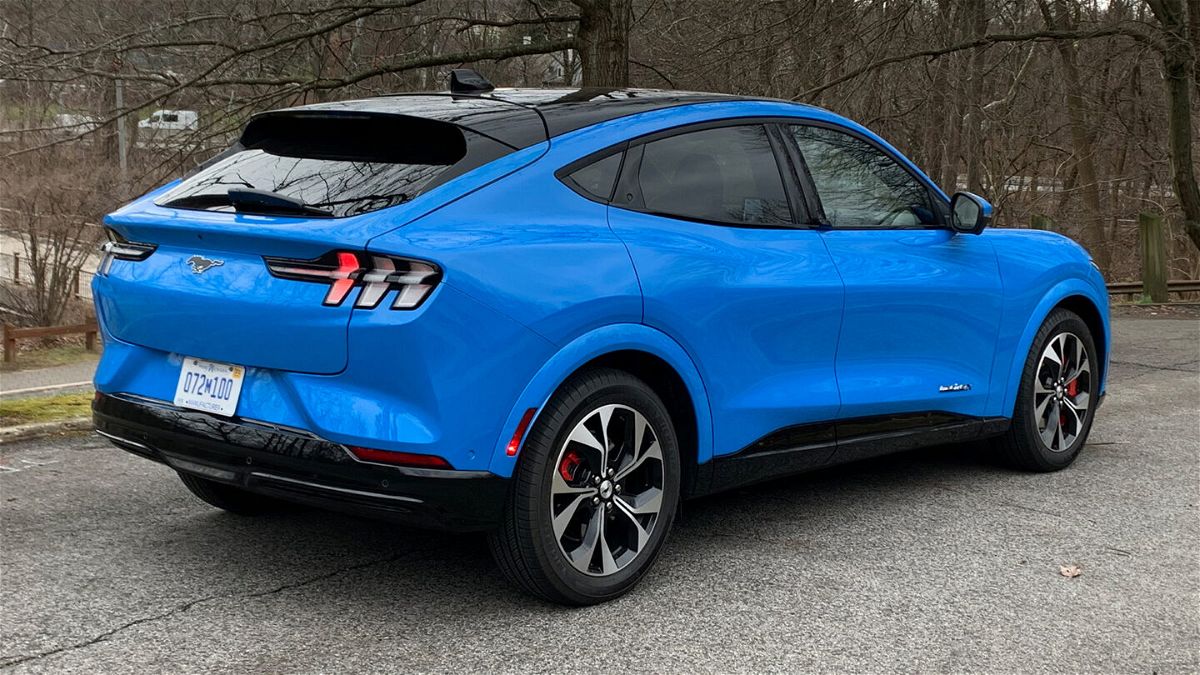In boost for Ford and Tesla, Treasury changes EV tax rules making it easier to qualify as an SUV

Is the Ford Mustang Mach-E an SUV? How about the Tesla Model Y? Depending on which branch of the US government you ask
By Peter Valdes-Dapena, CNN Business
Is the Ford Mustang Mach-E an SUV? How about the Tesla Model Y? Depending on which branch of the US government you ask, the answer could be “Yes,” “No,” or “It depends.”
With new rules now in effect for electric vehicle tax credits, that answer could mean thousands of dollars to some car buyers and lots of money to automaker profits. Under the new regulations, car buyers can’t claim tax credits for cars costing more than $55,000. But, for SUVs, the sticker price can be as high as $80,000. Until now, the Treasury Department considered the Mustang Mach-E a car, not an SUV, for purposes of tax credits. Same with the Tesla Model Y, unless it was equipped with a third row of seats.
If you search the Environmental Protection Agency’s FuelEconomy.gov website for electric SUVs, though, you will both those models appear in your search regardless of how many seats they have. The tax rules seemed to defy both common sense and what the EPA was saying. So the US Treasury Department announced on Friday that it was changing things so that the Treasury Department’s definition of an SUV will now comply with the “consumer-facing” standard the EPA uses on fuel-economy labels and on its web site.
Before, the Treasury Department had been relying on vehicle definitions used by the National Highway Traffic Administration to administer Corporate Average Fuel Economy regulations. The so-called CAFE definitions of vehicles are often different from what the average American might think based on a vehicle’s shape. Also, under the CAFE definitions, the same vehicle might be defined as an SUV when equipped with certain options but as a car without those features.
The Volkswagen ID.4, would be considered an SUV under CAFE when equipped with all-wheel-drive, but a car if not. Under the standards used by the EPA for its website, those vehicles are SUVs no matter how they’re equipped.
“This change will allow crossover vehicles that share similar features to be treated consistently,” the Treasury Department said in an announcement.
Not every vehicle that an automaker markets as an SUV will necessarily qualify, though. The Chevrolet Bolt EUV, for example, retains the $55,000 cap, even though GM has called it a crossover SUV version of the Bolt hatchback. The lines dividing cars from SUVs are, in many cases, quite vague, said Chris Harto, a senior policy analyst for Consumer Reports.
“In many cases, they’re really just hatchbacks and station wagons with, you know, slightly better marketing,” he said.
People who had purchased a vehicle since January 1. 2023 and who didn’t qualify for a tax credit under the old rules may now qualify, Treasury said in its announcement. No vehicles are losing eligibility based on this rule change, Treasury said.
The-CNN-Wire
™ & © 2023 Cable News Network, Inc., a Warner Bros. Discovery Company. All rights reserved.

